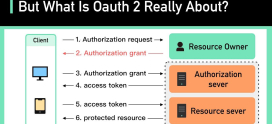The Importance of SSL Certificates for E-commerce Sites
Have you ever hesitated to enter your credit card information on a website? You’re not alone. In today’s world, online shopping is as common as going to the mall, but it comes with its fair share of worries. Concerns about scams, hackers, and identity theft can loom large when your personal information is just a few clicks away. It’s perfectly natural to want to feel secure while making purchases online. That’s where SSL certificates come into play. What if I told you that a simple little certificate could make a world of difference in your online shopping experience?
As an e-commerce business owner, you might find that attracting customers is tough enough without the added challenge of ensuring their trust. But don’t worry—understanding SSL certificates can help bridge that trust gap. Taking the time to comprehend what SSL certificates do can lead to customer loyalty, security, and ultimately, a thriving business. So buckle up! Let’s dive into the world of SSL certificates and why they’re essential for e-commerce websites.
What is an SSL Certificate?
SSL stands for Secure Sockets Layer. It’s a secure protocol that encrypts data between the user’s browser and your server. Imagine sending a love letter sealed in a beautifully decorated envelope; that’s how SSL works. It ensures that your message (or personal and financial data) is safeguarded from prying eyes during transit. Without this layer of security, the information could get intercepted, leading to potentially disastrous consequences for both the customer and the business.
Why SSL Certificates are Crucial for E-Commerce?
When it comes to e-commerce, SSL certificates are not just an option—they’re essential. Here are some key reasons why:
1. Enhances Website Security
Data security is the cornerstone of e-commerce. When customers see HTTPS (the ‘S’ stands for secure) at the beginning of your URL, they feel reassured that their information is safe. An SSL certificate encrypts sensitive data, protecting it from hackers who might attempt to steal it. It’s like having a solid safe to protect your customers’ valuables!
2. Builds Customer Trust
In the online market, trust is everything. If customers don’t feel safe, they’re unlikely to complete a purchase. Just think about it: wouldn’t you feel more comfortable buying from a website that clearly displays a lock icon in the address bar? By investing in an SSL certificate, you show your commitment to security, which in turn fosters trust. This often leads to increased conversion rates and customer retention.
3. Improves SEO Rankings
Did you know that Google prioritizes secure websites? Implementing SSL can give your e-commerce site a much-needed SEO boost. In a crowded marketplace, every little advantage counts. With search engines constantly evolving their algorithms, having SSL can play a role in getting you a little higher up the rankings.
4. Compliance with Regulations
There are numerous regulations governing online transactions, such as GDPR in Europe. Having an SSL certificate is not just about security; it’s also about compliance. E-commerce sites without SSL are at risk of legal repercussions and penalties. Moreover, some payment providers may even refuse to work with a site lacking proper security measures.
5. Protects Brand Reputation
Your brand reputation is everything. If customers feel that their information is at risk, they will not hesitate to avoid your site and spread the word about their bad experience. The reverse is also true: when customers trust your brand, they are more likely to recommend it to their friends and family. Investing in SSL helps maintain a positive brand image and encourages word-of-mouth referrals.
How to Obtain an SSL Certificate
Now that you understand the importance of having an SSL certificate, you might be wondering how to get one. The good news is that it’s relatively straightforward! Here’s how:
- Choose a Certificate Authority (CA): There are various CAs, like Let’s Encrypt, DigiCert, and Comodo. Choose one based on your needs and budget.
- Select your Certificate Type: Depending on your business size and requirements, you can opt for a Domain Validated (DV), Organization Validated (OV), or Extended Validation (EV) SSL certificate.
- Generate a Certificate Signing Request (CSR): This is essentially a message your server sends to the CA to prove its identity.
- Submit your CSR and get validated: The CA will verify your identity depending on the type of certificate you’ve selected. This is the time-consuming part, but it’s essential for security.
- Install the SSL Certificate: Once approved, you’ll receive your SSL certificate files. Follow your hosting provider’s instructions to install it.
Key Features to Look for in SSL Certificates
When choosing an SSL certificate, it’s crucial to look for specific features that meet your e-commerce needs. Here are some essential elements to consider:
- Encryption Strength: Look for certificates that offer 256-bit encryption, which is the industry standard for security.
- Compatibility: Ensure the SSL certificate is compatible with most web browsers to avoid usability issues for customers.
- Green Bar or Seal: Extended Validation (EV) certificates often provide a visual cue (like a green address bar), further enhancing trust.
- Customer Support: Select a provider that offers 24/7 customer support for any issues or queries you may encounter.
Comparing SSL Certificate Providers
| Provider | Types Offered | Price Range | Support |
|---|---|---|---|
| Let’s Encrypt | DV Only | Free | Community Support |
| DigiCert | DV, OV, EV | $$$ | 24/7 Support |
| Comodo | DV, OV, EV | $-$$ | 24/7 Support |
| DarazHost | DV, OV | $$ | Expert Support |
Each provider has its merits, so consider your specific needs and budget while making a choice. For instance, if you’re starting out with a tight budget, Let’s Encrypt may be a suitable option. However, if you’re running a larger site with sensitive data, you might want to lean toward a provider like DigiCert or DarazHost for added support and features.
Common Myths About SSL Certificates
Before wrapping up, let’s debunk some common myths surrounding SSL certificates:
Myth 1: SSL Certificates are Only for Large Businesses
False! Any website that collects sensitive information should have an SSL certificate, regardless of size. From mom-and-pop shops to corporate giants, everyone can benefit from enhanced security.
Myth 2: SSL Certificates are Expensive
While some premium options exist, many reputable providers, such as Let’s Encrypt, offer free SSL certificates. Investing in security is a wise choice, but it doesn’t have to break the bank!
Myth 3: Once You Get an SSL Certificate, You’re Set for Life
Not exactly! SSL certificates need renewal, typically every year or two, and your website’s security policies should remain updated. Regular checks ensure ongoing protection.
FAQs
What happens if I don’t use an SSL certificate?
Not using an SSL certificate leaves your website vulnerable to attacks, risks your customers’ data, and undermines their trust in your business.
Can I install an SSL certificate myself?
Yes! Most hosting providers have guides available to help you install SSL certificates yourself, but it can also be worth consulting support if you’re unsure.
How long does it take to get an SSL certificate?
Do I need an SSL certificate for my blog or website if I don’t sell anything?
Yes! It’s a good practice to use an SSL certificate even if you don’t sell products. It protects the data of your site visitors and improves your website’s ranking in search engines.
Conclusion
In the ever-evolving landscape of e-commerce, trust and security are paramount. SSL certificates are not merely options; they are essential tools that enhance security, build customer trust, improve SEO rankings, ensure regulatory compliance, and protect your brand’s reputation. Whether you run a small blog or a larger e-commerce enterprise, investing in an SSL certificate is a proactive step towards safeguarding your business and your customers.
Now that you’re equipped with the knowledge and understanding of SSL certificates, take action today! Safeguard your online presence and provide your customers the peace of mind they deserve.









